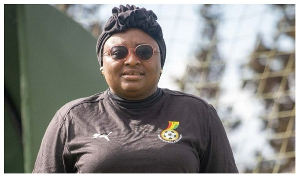By Joseph Ziem
Wisdom they say has no boundaries and wherever it is one can reach for it only if you have the means or all that it takes to go for it. If you aren’t born with wisdom, you can acquire it from parents, elders in your family, society in which you reside in or through education, be it formal or informal. Besides, you can also pray to God for wisdom.
For instance the Holy Bible tells us of Solomon; the wisest and greatest kings ever who prayed to God to bless him with wisdom and God answered his prayer. King Solomon used his wisdom to acquire a lot of wealth and wrote books which include the Song of Songs, the book of Proverbs and Ecclesiastes in honor of God. He composed 3,000 Proverbs and 1,005 Songs. His wisdom enabled him to rule a very large kingdom that extended from the Euphrates River in the North to Egypt in the South. The story of King Solomon indicates that almost all knowledge of him was derived from the books of Kings I and Chronicles II. This wisdom earned him fame and respect from several kingdoms far and near his.
Although Solomon was young (the youngest of King David’s sons), he soon became known for his wisdom. Because of his wisdom, people from surrounding nations also came to seek advice from him and learned from him as well. One of the most celebrated visits to King Solomon was that of the Queen of Sheba, who came from Southern Arabia. Historically, Arabia was a country rich in gold, frankincense, and myrrh. King Solomon needed Sheba’s products and trade routes; the Queen of Sheba also needed Solomon’s cooperation in marketing her country’s goods. She asked him questions and riddles and was amazed at his wisdom. King Solomon’s crowning achievement was the building of the Holy Temple in Jerusalem which took seven years to complete.
My argument in this article may seem controversial and thought-provoking, but I think that once someone is a chief the person must be wise or seek advice from wise men to enable him lead his people effectively. If you are a chief and your advisers excuse me to say are foolish; hunger, diseases, poverty and ignorance will afflict your people. And if there is any monarch in this contemporary history whose leadership qualities match or are likely to match the Biblical King Solomon, I think that is the King of the Great Ashanti Kingdom, Asantehene Otumfuo Osei Tutu II.
Like the Biblical King Solomon, the King of Ashanti is the youngest of the five children of his parents Nana Kwame Boakye-Dankwa, chief of Brehyia and Nana Afua Kobi Serwaa Ampem II, Queen Mother of Ashanti (Source: Wikipedia).
Otumfuo Osei Tutu II is one monarch who has won great admiration for the unique brand of leadership he has provided the people of Ashanti in particular, and Ghana in general, since he ascended to the Golden Stool and the enormous responsibilities that go with the position. Always mindful of the importance of peace and stability to good governance and economic development one of his first tasks was to encourage his people to seek the path of arbitration instead of litigation in numerous land and succession disputes that had plagued the Ashanti Kingdom for decades. This task, he has performed with great wisdom and tenacity of purpose, earning for himself remarkable respect among the people, Ghana and the international community. The vision of this King encompasses education, health and economic development.
He set up the Otumfuo Education Fund to generate resources, as an effort to provide opportunities for quality education not only in his Kingdom, but also in Ghana generally. Since its inception the Fund has benefited over 5,000 students at various levels of education. This feat won him the Symons Award in April, 2000 from the Association of Commonwealth Universities.
Another initiative of this King is the Health Fund he established to pursue a basic healthcare plan whose laudable objectives include financial and material support for the reduction of maternal and infant mortality, glaucoma and other eye diseases, buruli ulcer as well as the eradication of guinea worm disease. He also set up the Serwaa Ampem Aids Foundation to help children who have acquired the HIV/AIDS virus.
In his own initiative Otumfuo Osei Tutu II, secured a World Bank grant with the approval of the Government of Ghana for a pilot project. Entitled: ‘'Promoting Partnerships with Traditional Authorities Project'' , it has thrown a challenge to our chiefs to demonstrate their capacity to use their own resources in response to financial support made available by the Government or the World Bank to help develop their communities.
Under the Project, new school buildings have been built, old ones rehabilitated and teachers’ residential quarters provided with facilities for safe water and electricity supply.
Otumfuo's vision includes the setting up of an Asanteman Economic Revitalization Plan to promote private and corporate investment in local industries, reforestation and irrigation programmes. He has already extended invitation to all prospective investors to Ashanti, with a firm promise of easy access to land. Otumfuo Osei Tutu II has brought peace and reconciliation to his Kingdom within the short span of ten years that he has been in power. He has settled over 500 Chieftaincy and Land disputes.
Since ascending the throne Otumfuo has been the official guest of many world dignitaries prominent amongst them include, Queen Elizabeth II of Britain, Queen Beatrix of Holland, Busumuru Kofi Annan, former U. N. Secretary General, former Presidents Thabo Mbeki and Nelson Mandela of South Africa, the Archbishop of Canterbury, President Alhaji Tejan Kabbah of Sierra Leone, President Muammar Al Qathafi of Libya, King Mohammed VI of Morocco and President Horst Kholer of Germany and among others.
Otumfuo Osei Tutu II stands tall as a visionary, a Great Leader of Asanteman, leading in the preservation of cultural heritage as well as combining modernism and tradition to promote the education, health and economic development of his people.
So what exactly is my beef? My beef is about the sheer incompetence and bad leadership style of most chiefs of Northern Ghana. I don’t know whether it’s because they do not have tenure of office like the President, most of them simply are not performing up to the expectation of their people and even when they commit acts that bring the skin to disrepute their people out of respect cannot criticize them.
Just imagine one of my Southern friends (name withheld) telling me that all our chiefs know is to wake up and start chewing kola and if there is anything good to think of, it’s either how to attack a particular royal family, seize some one’s land or say this tribe or group of people have no right to live in this or that community.
Immediately I began to rage in anger thinking that was very offensive, but upon a second thought I said to myself that the dude is right. Besides, we hear this most of the time when we listen to radio stations in the South when panelists are discussing issues concerning the North. It is because the three regions of the North – Northern, Upper East and Upper West, chieftaincy and land disputes that could have been resolved so easily have over the past decades taken peace away and stalled development resulting into extreme poverty and sheer ignorance amongst majority of the people. Anytime there is a dispute over a vacant skin or piece of land all the parties involve think of is either killing or maiming each other to gain control over that particular skin or piece of land.
Over the years, most of the chiefs have not been able to demonstrate enough that they also can dine with the great and mighty outside the shores of Ghana. They have totally failed to market themselves and their high offices very well and therefore need rebranding. How many of them regularly receive invitations like the Asantehene from great personalities and global figures to address a gathering at an international event?
To say the least, most of them are not business and development oriented and lack the wisdom of Otumfuo Osei Tutu II to enable them attract investors to their kingdoms to invest. I’ve always said that if any government comes and decide not to even mind the people of Ashanti Region, their King alone can provide them good jobs, quality education and healthcare, safe drinking water, infrastructure and the basic necessities of life.
In fact, I can’t count the number of chiefs in Northern Ghana who have set up Educational, Health and Peace Funds. Same way I can’t count the number of chiefs who have received Honorary Doctorate Degrees even within the country, not to talk of outside the shores of Ghana. But the Asantehene alone has eight honorary doctorate degrees to his credit, all from institutions of high repute due to the enormous achievement he has chalked.
Most of the Northern Chiefs allegedly condone the crimes of their people, incite them to fight and refuse to release land for free to NGOs to build schools, hospitals and other projects for them. They are the first to call at the Police Station to demand the release of people who breach state laws and have been arrested.
My humble plea at this moment is that it’s not wrong for any Northern chief to visit the wise Asantehene and seek counseling. Aside the Asantehene, the wise man of the Asogli State is there; not forgetting the Okyehene and the Professor at Essikado Traditional Area. Please don’t wait till you meet such great personalities at functions where you only hobnob and it ends there. The essence of becoming a chief is being able to provide for your people when they are in dire need of what will keep body and soul together. With a kind permission from my friends on the bench, I rest my case.
The writer is a freelance journalist but regularly writes for The Daily Dispatch Newspaper. Views or comments may be sent to him via ziemjoseph@yahoo.com/ +233 207344104.
Opinions of Sunday, 31 March 2013
Columnist: Ziem, Joseph


















